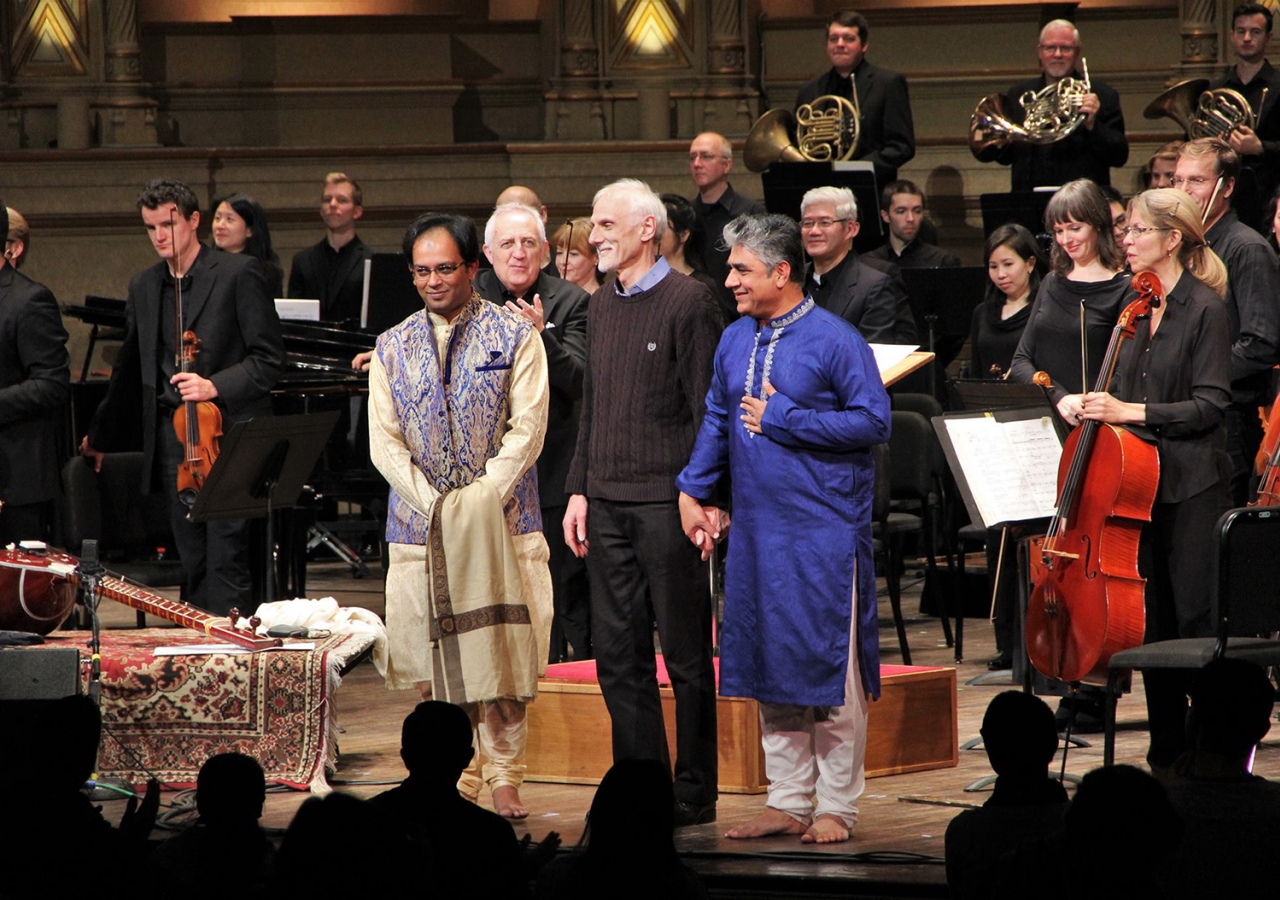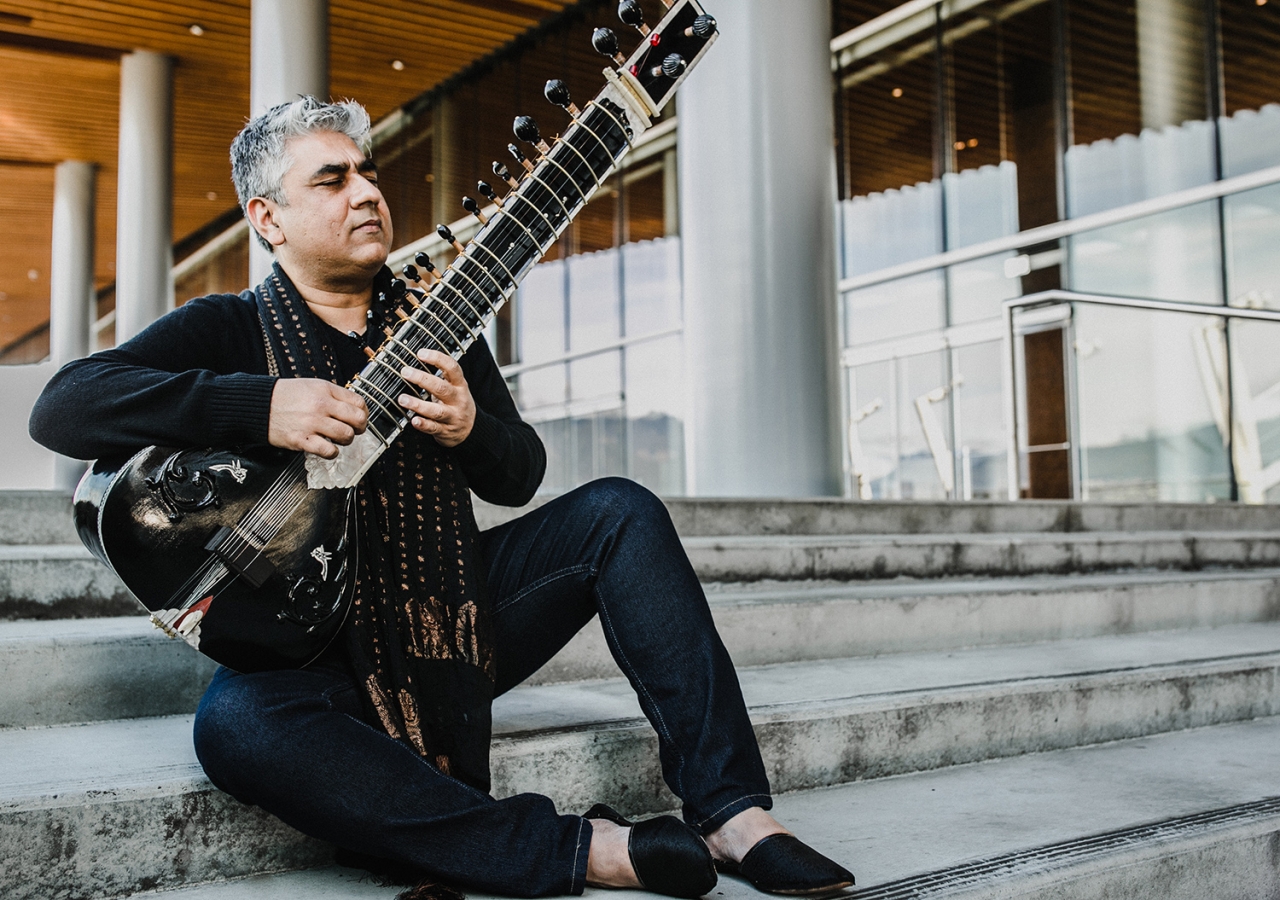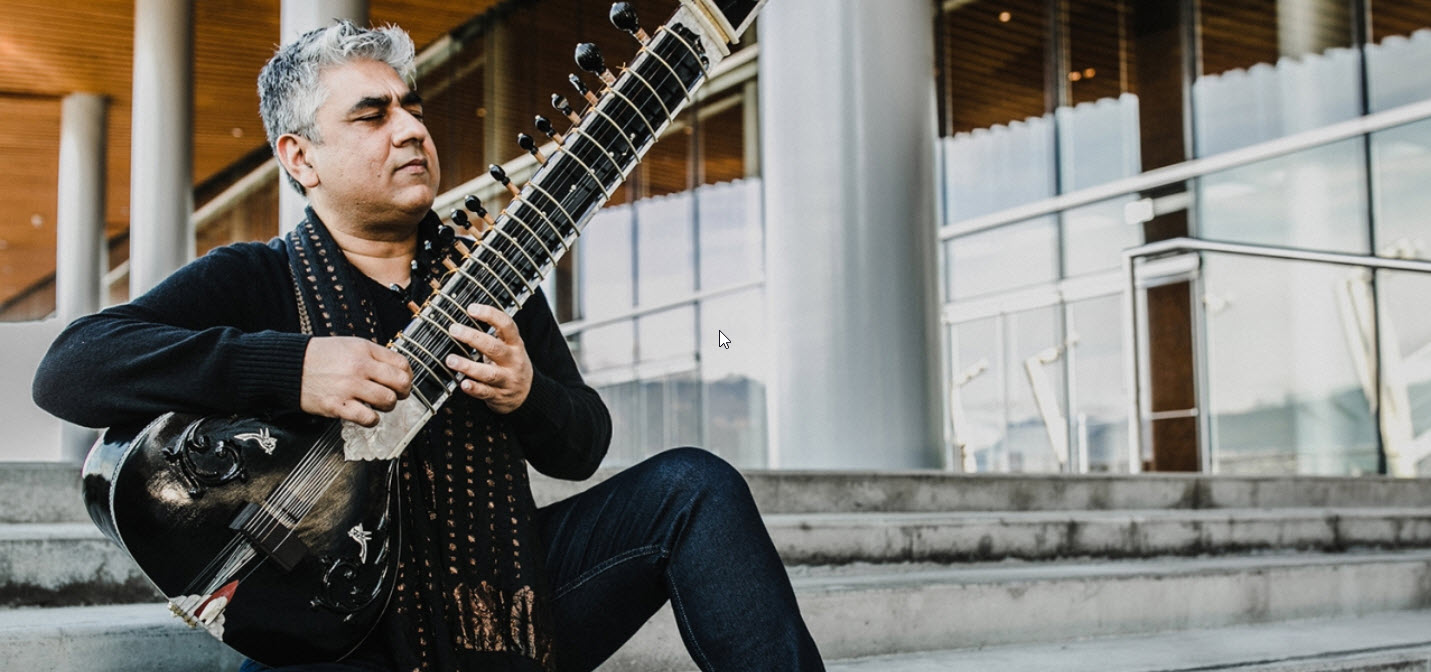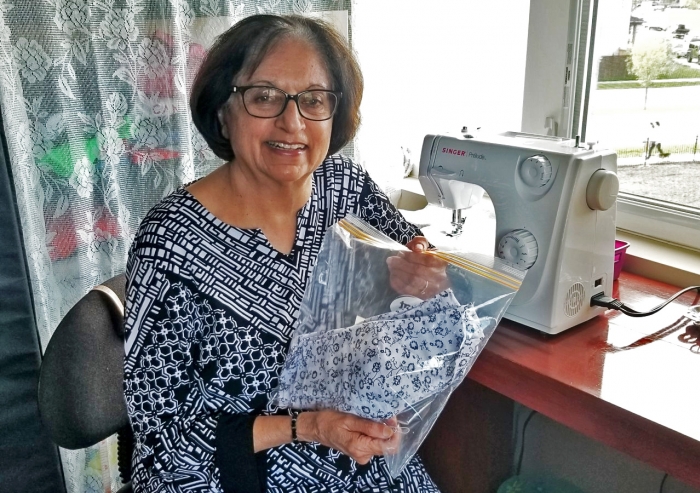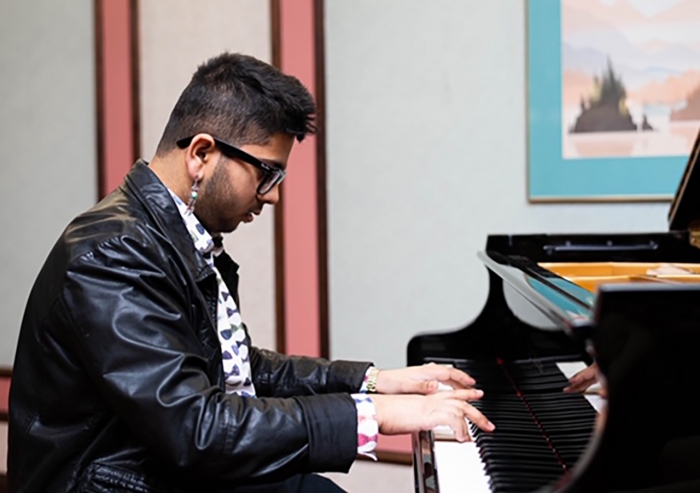Musical composer Mohamed Assani has both of these qualities, yet he didn’t truly arrive until he learned to play the sitar about 17 years ago. Before that, he studied western music and his primary instrument was the piano.
“When I learned to play sitar, I was able to connect the past and the present,” said the 50-year-old Assani, explaining how his new instrument allowed him to merge classical Indian music with Western.
Assani’s coming out in terms of combining musical styles came when the Vancouver Symphony Orchestra performed Pressed for Time at the Orpheum Theatre in November 2017, with Assani accompanying on the sitar.
“We wanted something new, something that had not been done before,” he said, explaining the genesis of the piece. After receiving approval for the idea from VSO Maestro Bramwell Tovey, Assani and John Oliver co-composed the piece over a year and a half.
Farzana Logan, a writer who has covered the sitarist for the Ismaili Canada Magazine, was part of the large audience that took in the performance.
“It was mind blowing hearing the combination of the sitar and the orchestra,” said Logan after watching the concert. “Sometimes the sitar was the star and sometimes the orchestra was. It was an amazing balance.”
Amongst both the musical and Ismaili communities in Vancouver, Assani’s name is known. He has performed during the Indian Summer Festival at Ismaili Centre Burnaby, at the World Partnership Walk at Stanley Park, and he served as a judge for the local Jubilee Arts Program in February.
A lifetime of musical education
Assani’s life has been intertwined with music from the beginning. Growing up in Karachi, Pakistan, his dream as a youngster was to play in the Ismaili band at Karachi’s Garden Jamatkhana.
One evening, with the band’s bass player unable to make it to a performance, the conductor called on a 12-year-old Assani and asked if he could fill in. He was learning to play guitar at the time.
About three years later, a non-appearance by the group’s piano player left them in a similar bind. This time Assani, now their bass player, spoke up himself, saying he could fill in. Needless to say he impressed everyone in the band with his performances and his musical gifts were apparent to everyone from then on.
With that passion, Assani commenced studies at Dartington College of Arts in 1987, where he pursued an education in western music. For several years he played in various bands, in genres including bossa nova and jazz. He also taught music at the prestigious Royal Academy of Music in London for several years.
Which brings us to the day he decided to switch to the sitar.
Assani explains that he had a vision while he slept one night. He saw himself playing the sitar with a teacher, and he still remembers having the feeling that he knew how to play the instrument. This eventually led him to take up the instrument, and two years after doing so, he was teaching sitar to students in the same community course where he had learned to play.
“I find that now I communicate more with my sitar. When I played before on the piano, I was just playing,” he said.
“I am able to bring myself, my own personality through the sitar.”
The challenges of pursuing music
Over the years, when Assani has told people he is a musician, he has often been asked what he does for a living, what his “job” is. He says this has decreased over the past five years, as more and more people are recognizing music as a profession in its own right.
Assani also faced opposition from within his own family, as his father wanted him to pursue a more traditional profession. The young Assani’s resolve was so strong that he pushed on, despite the strong resistance.
Speaking about the challenges young musicians face, Assani explains: “An artist needs nourishment. Without nurturing, it doesn’t happen.”
Luckily for Assani, his mother and siblings were supportive of his musical pursuits.
He believes musicians and artists require community support, role models, and financial support. For future generations to have success he believes mentors and teachers must be treated as professionals. “It’s an investment and it’s a different mindset,” he says.
Assani is quick to add that things are moving in the right direction in terms of developing Ismaili artists of the future. He points out that the Aga Khan Music Awards, which were announced in March 2018, as well as the Jubilee Arts Programme, will encourage the next generation to follow their dreams.
Looking to the future
Over the past two years, Assani has played sitar in the presence of Mawlana Hazar Imam twice.
Music has already opened doors for him and he’s excited to see what’s next, as he aims to perform Pressed for Time and other fusion compositions at more venues and with different orchestras around the world.
He also hopes to be a mentor and role model to younger Ismaili artists.
“I’m happy to see that recently there’s more music happening in the Ismaili community,” he says. “We’re just starting in that direction.”
Questions, comments, article suggestions? Contact Canada My Community Editor: [email protected]

